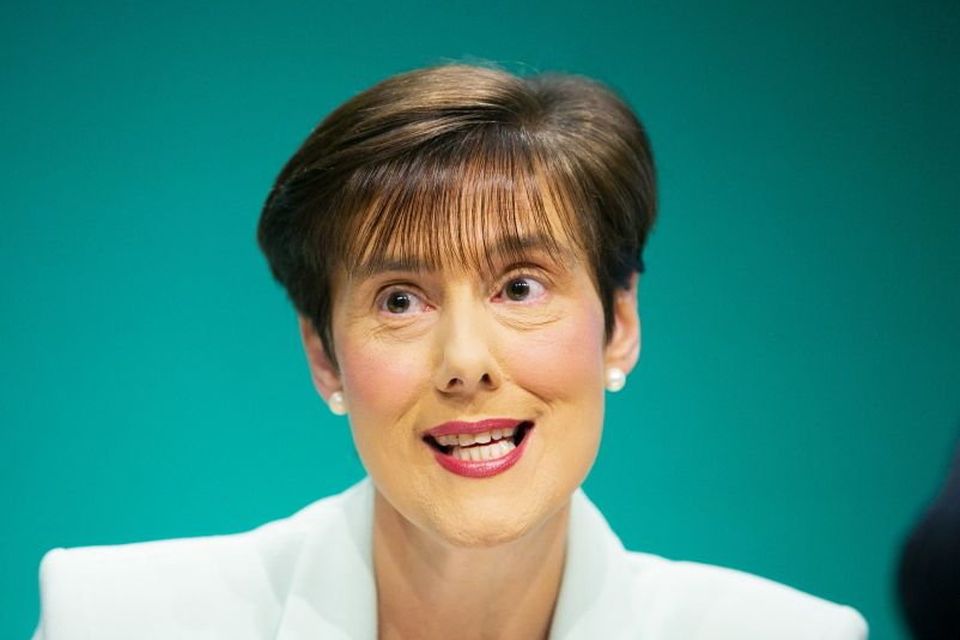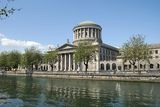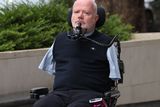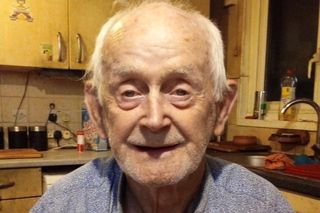Integrity of Leaving and Junior Cert exams to be protected from AI threat, Minister Norma Foley vows
Education Minister Norma Foley. Photo: Collins
The world-recognised integrity of Ireland's State examination system will be fully protected from any challenge posed by artificial intelligence as Education Minister Norma Foley warned that the country cannot afford to be afraid to harness the benefits offered by AI.
Her warning came as leading secondary teachers unions expressed concerns over the potential employment threat posed by AI - and demanded that the scale of the challenge be recognised by its inclusion in future social partnership agreements between the Government and trade unions.
Teachers Union of Ireland (TUI) members warned that AI should never replace human beings in the classroom and must only be used to support and not undermine teachers.
Ms Foley stressed that Ireland cannot afford to ignore the enormous benefits offered by AI because of fear of its obvious challenges.
But she vowed that the integrity of the Junior Cert and Leaving Cert in the State exam system will be guaranteed from any challenges posed by AI.
"I think we need to be very clear there are and will be enormous benefits to AI - I think education needs to harness those benefits and we need to educate our staff and students on how best to utilise those benefits," she said.
"But I am equally conscious that there are challenges and negatives to the use of AI also.
"In that respect we are within the department very focused on that. We are working from an EU point of view - there is significant work being done in the EU.
"For example, in the last couple of weeks we hosted as a department a gathering in Athlone of teachers to ascertain their views, their experiences and their long-term view of AI.
"There is also a significant body of work being done by the State Examinations Commission. I am confident and they are confident that they are protecting the integrity of the exams - and that is important."
The Kerry TD said that Ireland was fully aware of the benefits offered by AI and was one of the European countries leading the way in terms of adapting both to its benefits and challenges.
"Equally so, it is important to say that Ireland - we are one of five countries that engaged at an EU level on a programme dedicated to AI for teachers and by teachers. All the learnings from that are available now,” she said.
"We are proactive in this phase. We need to learn more and more, But we need not to be afraid to harness the positives but also be mindful of armouring ourselves against the negatives. It is a very active phase in education.”
For the first time, AI emerged as a major item at the various teacher conferences over Easter including both the TUI and Association of Secondary Teachers in Ireland (ASTI).
Both demanded specific protections from any threat to jobs posed by AI.
Concerns were also raised over how AI might impact classwork, in particular the originality of material submitted by students.
TUI delegates overwhelmingly passed a series of motions aimed at implementing safeguards over the use of AI - and to ensure AI can never threaten existing employment.
The motions came as it emerged that AI was already challenging certain classwork with AI-supported programmes writing essays for students and even supplying codework for some projects.
A TUI executive committee motion was joined by four branches from Donegal, Galway, Longford and Offaly in warning of the potential dangers posed by AI to the Irish education sector if its use was unregulated.
The union has now voted to insist that AI and its potential deployment be on the agenda for all future national discussions between the Irish Congress of Trade Unions (ICTU) and the Government.
Donegal TUI member Ursula O'Connor said the challenges were as real as they were far-reaching for educators.
"This is not science fiction," she warned.
"It is the reality in 2024 - we are at the dawn of a new age. This is the age of AI. But along with the endless possibilities we must be alert to the potential pitfalls."
The EU has already acknowledged that, in terms of the general applications of AI, the global education sector has the highest risk.
"Teachers must remain at the core of the education system. AI must support and never replace teachers."
TUI executive committee member Antoinette Rourke warned that AI must always serve the greater good in society.
"We have to tread very carefully," she said.
"We need assurances that no worker should be at the will of a machine. AI must align with our values, our ethics and our societal wellbeing."
TUI members warned that such are the far-reaching applications of AI that it has even brought the authenticity of some classwork into doubt.
"Will it be the student's project, Mammy's project or the AI project?" one delegate asked.
TUI delegates overwhelmingly backed motions from four county branches which stressed that "human interaction… (must remain) at the heart of quality education."
"AI must not be allowed to substitute for, displace or replace teachers or lecturers,” one motion said.
TUI members stressed that, if necessary, the potential threat of AI be dealt with by means of industrial action either at local or national level.
The union executive acknowledged that AI "has profound and immediate implications involving both risk and opportunity for public education systems, for education sector employees, for learners and for teaching and learning."
It is now planned to create a special working group to analyse and monitor the risks and opportunities offered by AI within the education sector.
Further, the TUI will now develop a strategic approach to the use of AI for schools and colleges following on from a special policy study last year.
It was agreed that the union "demand of all relevant government agencies credible assurances and commensurate practical measures to insist that the use of AI in the public education sphere will be the subject of social dialogue and, where appropriate, collective agreements."
Join the Irish Independent WhatsApp channel
Stay up to date with all the latest news















